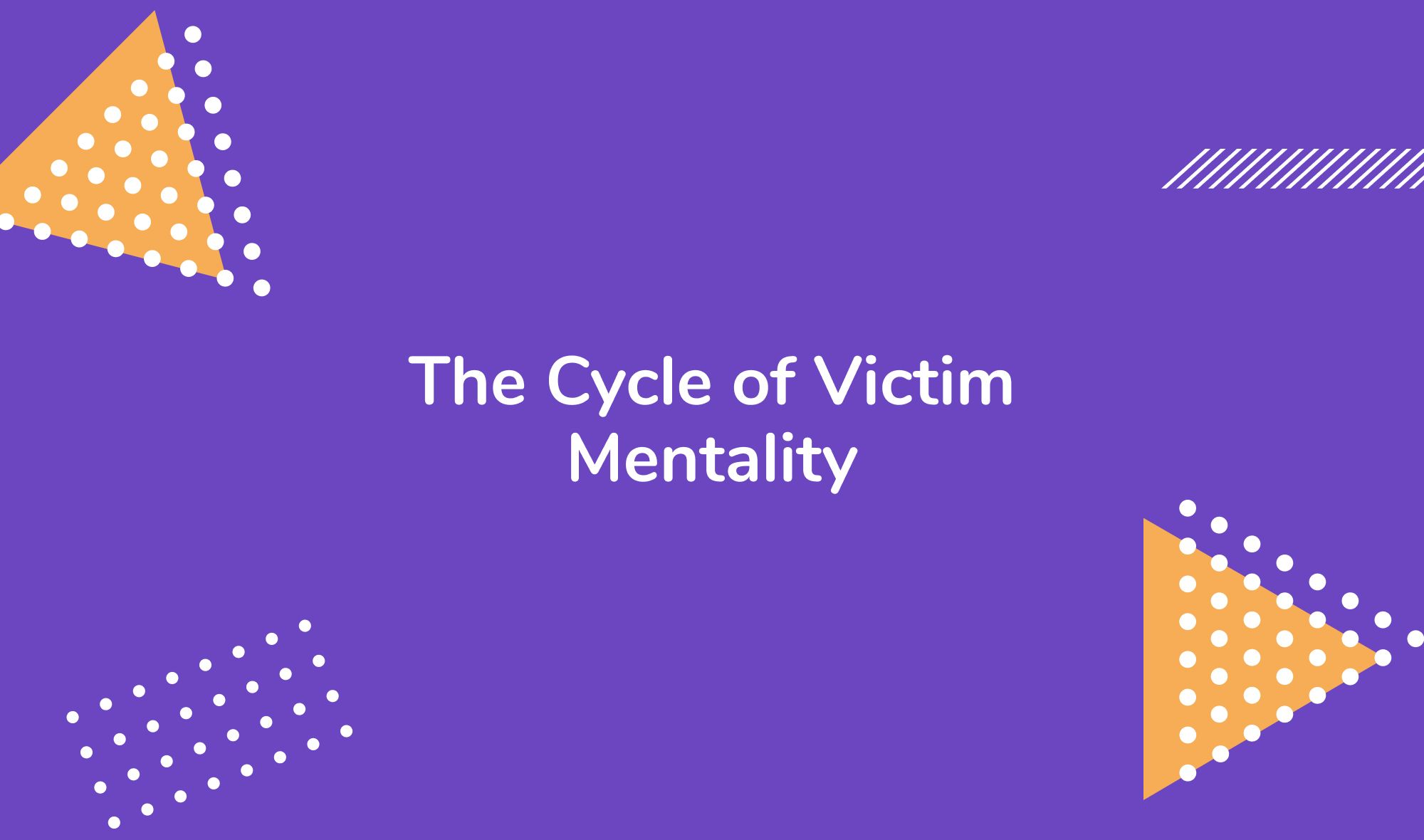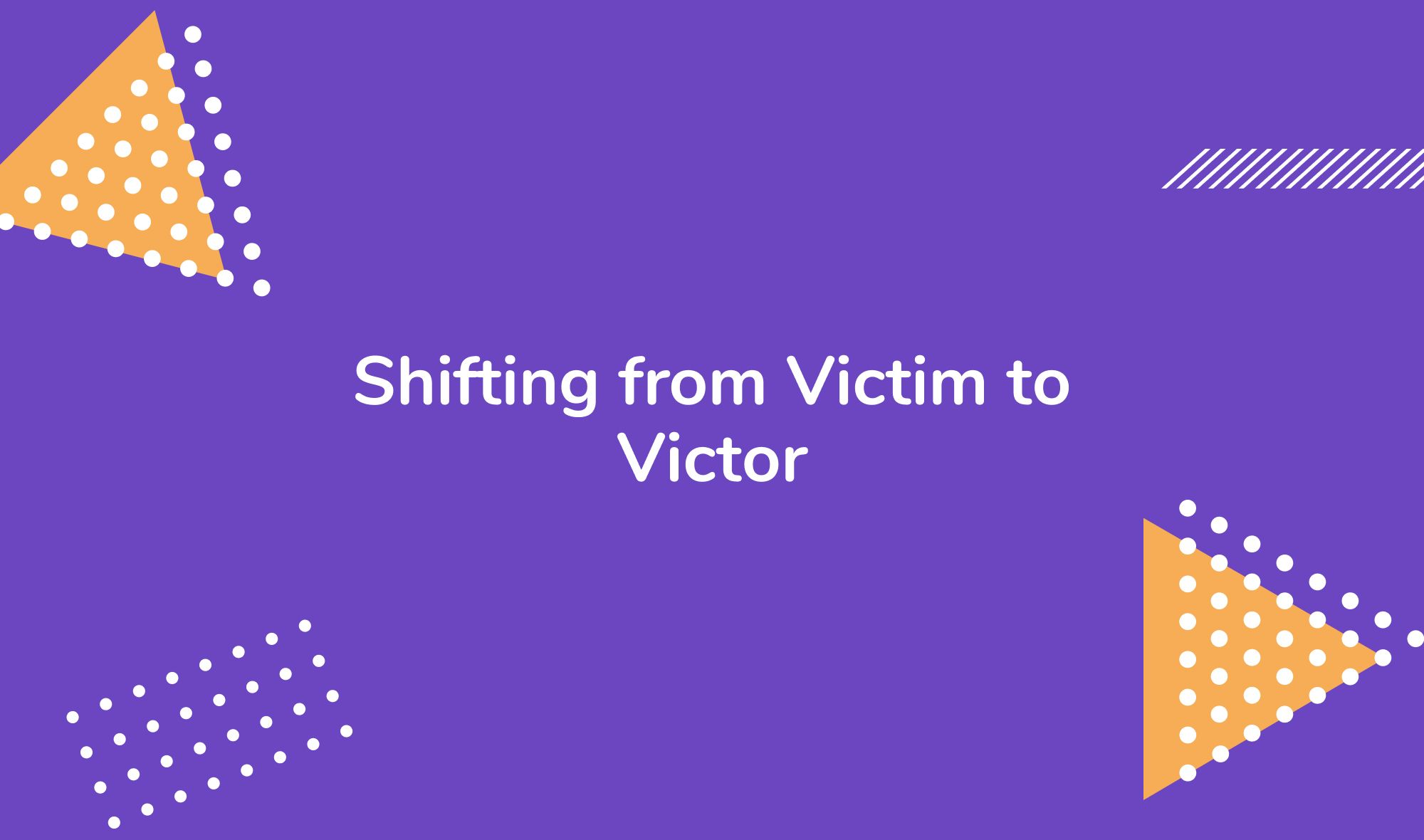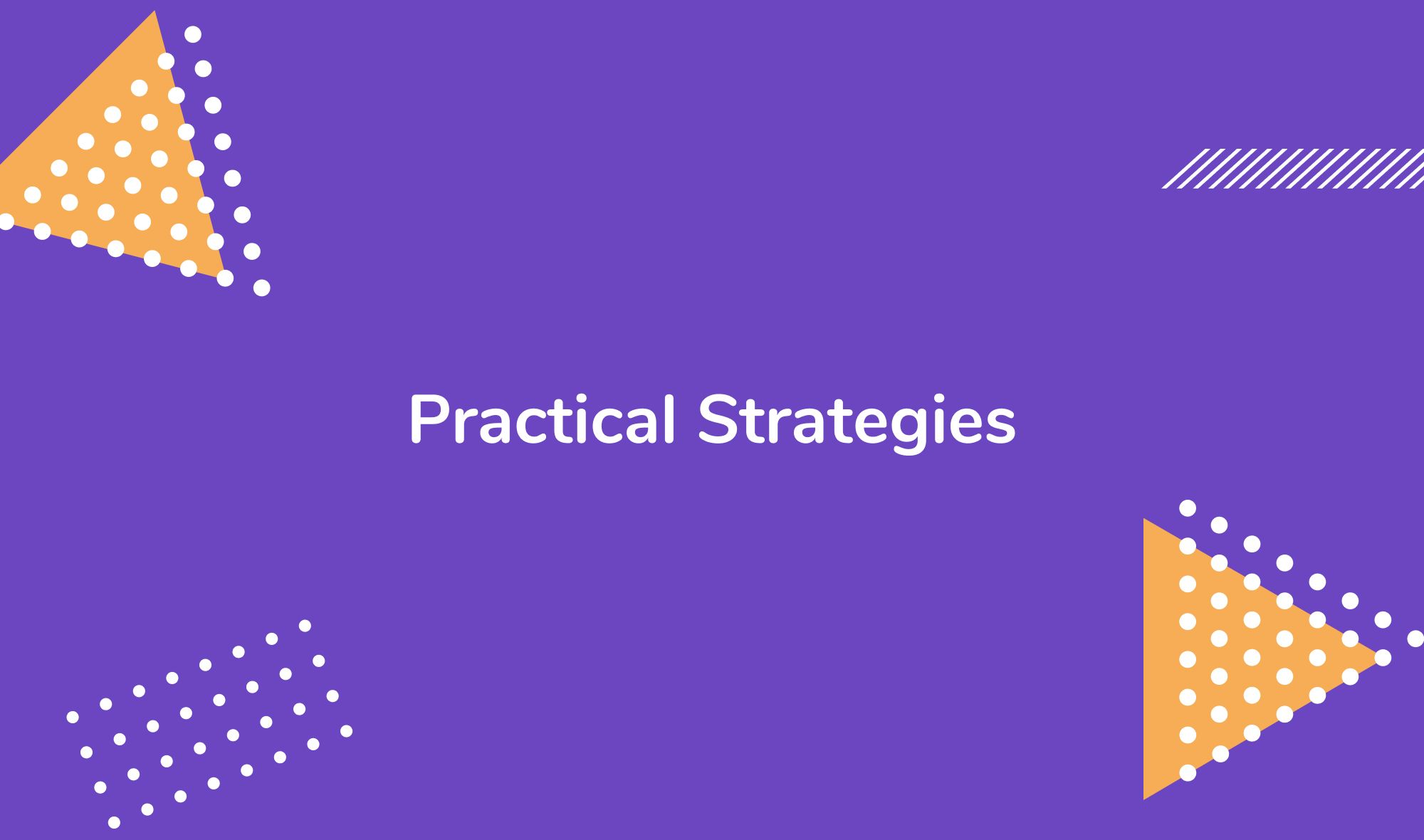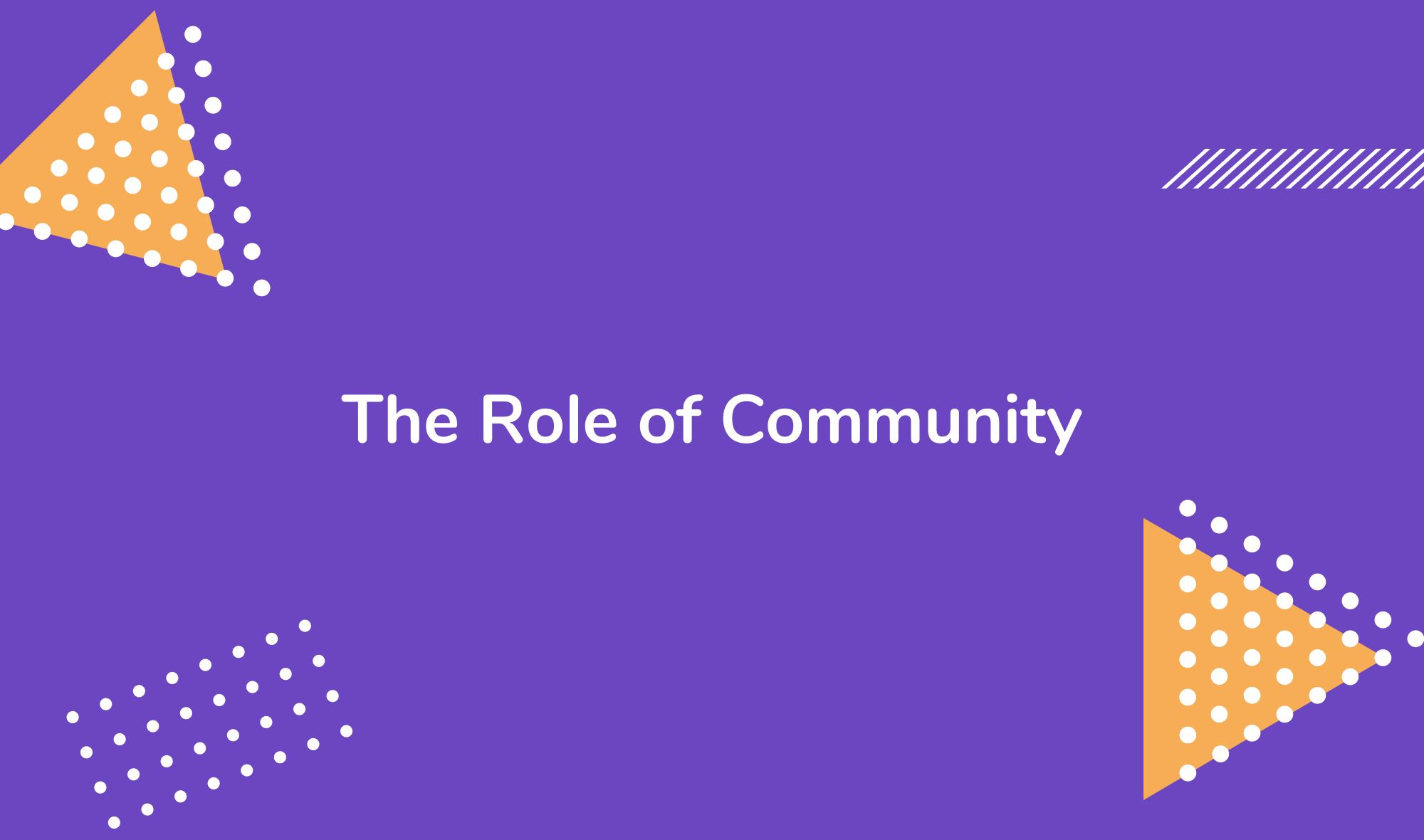The Opposite of Victim: How to Move Beyond the Victim Mindset
By Julian Lewis • July 15, 2023
Key Takeaways
- Understanding and recognizing the signs of a victim mentality is crucial for transformation.
- The cycle of victim mentality often involves learned helplessness and blaming others.
- Shifting from a victim mindset involves taking control, being accountable, and building self-efficacy.
- Practical strategies for overcoming victim mentality include changing reactions to circumstances and fostering self-efficacy.
- Community and support systems play a vital role in moving beyond the victim mindset.

Do you often find yourself blaming others or circumstances for your setbacks? Have you ever felt stuck in life, unable to make progress because external forces always seem to hold you back? If your answer to these questions is "yes," then you might be entangled in a victim mentality.
Victim mentality is a state of mind where one perceives themselves as a victim of the negative actions of others, or unfavorable circumstances. Individuals with this mindset believe they have little to no control over their lives, often feeling helpless and unable to overcome their situations. This pervasive belief system can manifest in our thoughts, attitudes, and behaviors, becoming a significant roadblock to personal growth and fulfillment.
But here's the good news: no matter how deeply entrenched this mindset may be, it's never permanent. One can always move beyond it, taking the reins back and steering their life towards a more positive direction. This transformation entails stepping out of the victimhood, owning your life, and becoming the opposite of a victim - an active participant in your own story.
Our journey at ZellaLife has always been about supporting individuals in their quest for personal and professional growth. Overcoming the victim mentality is a critical part of this journey. Are you ready to transform your mindset and unlock your potential? Read on to discover how you can shift from being a victim to a victor.
Join our Newsletter
Transform your career with our personal growth insights. Get one valuable tip right in your inbox every Saturday morning.
Understanding the Victim Mentality
In our quest to move from a mindset of victimhood to a mentality of empowerment, the first critical step is understanding the victim mentality. Often associated with a 'victim complex,' this mindset can significantly influence an individual's attitudes, beliefs, and behaviors.
Victim Complex and Signs of Victim Syndrome
At the heart of the victim mentality lies the 'victim complex,' a psychological state where a person tends to perceive themselves as a victim of the negative actions of others, even in the absence of clear evidence. This complex is frequently a product of traumatic experiences that leave deep emotional scars, pushing individuals to adopt this mindset as a coping mechanism.
Common signs of victim syndrome include a tendency to blame others or circumstances for one's misfortunes, a persistent feeling of powerlessness, and a belief that they are constantly being targeted or treated unfairly. This mindset can lead to a state of learned helplessness, where the individual feels unable to change their circumstances or control their destiny.
Impact of Attitudes and Beliefs
The 'attitudes and beliefs' we hold significantly shape our realities, and this is especially true for those with a victim mentality. The belief in being perpetually at the mercy of others' actions or external circumstances fosters a state of perpetual victimhood, creating a self-fulfilling prophecy where individuals inadvertently create the situations they dread.
It's important to recognize that while these attitudes and beliefs are often deeply ingrained, they're not unchangeable. With awareness, dedication, and the right support, it's entirely possible to shift these beliefs, thus facilitating a move towards a more empowering mindset.
Overlap with Imposter Syndrome
Interestingly, there is a substantial overlap between the victim mentality and the imposter syndrome. Much like the victim mentality, individuals with imposter syndrome struggle with self-doubt and a sense of being a 'fraud.' They often feel undeserving of their achievements and attribute their successes to luck or other external factors, rather than their abilities or efforts.
Recognizing this intersection can be enlightening, as it highlights the role of our mental frameworks in shaping our self-perception and experiences. Addressing these overlapping issues can lead to profound personal transformation and growth.
The Cycle of Victim Mentality

Understanding the 'victim mentality' demands a deeper examination of the cycles that foster and perpetuate this mindset. Two critical elements within this cycle are 'learned helplessness' and the habit of 'blaming others.'
Learned Helplessness and Victim Mentality
'Learned helplessness' is a psychological phenomenon where individuals, after enduring repeated aversive stimuli that they were unable to escape or avoid, start to feel helpless, even in situations where they can control the outcome. This concept is instrumental in understanding the victim mindset.
Over time, individuals with a victim mentality develop a learned helplessness approach towards life, convincing themselves that they have no control over their circumstances. This mindset, once internalized, further solidifies the belief that they are victims, reinforcing the cycle and deepening their feeling of helplessness.
Join our Newsletter
Transform your career with our personal growth insights. Get one valuable tip right in your inbox every Saturday morning.
Blaming Others: A Coping Mechanism
Another significant component of the victim mentality cycle is the act of 'blaming others.' In the victim's view, their hardships are not the result of their own actions or decisions but rather the fault of others or unfortunate circumstances.
While blaming others might provide temporary emotional relief, it effectively becomes a coping mechanism that perpetuates the victim mentality. By externalizing responsibility, individuals are deprived of the opportunity to confront and address their challenges. They inadvertently surrender their power to influence their circumstances, which only serves to reinforce their feelings of helplessness.
Connection to Self-Sabotaging Behavior
Interestingly, this cycle of victim mentality is closely related to self-sabotaging behavior. The victim mentality can manifest as self-sabotage, where the fear of stepping out of the victimhood bubble can lead individuals to unconsciously undermine their efforts to improve their circumstances.
This interconnection underlines the necessity of breaking free from this self-defeating cycle. Acknowledging that we possess the power to shape our realities is the first step towards liberating ourselves from the grips of the victim mindset.
Shifting from Victim to Victor: The Opposite of Victim

To become the opposite of a victim, it's essential to shift from a passive to an active role, from the dominated to the dominator, from the victim to the victor. Here's how one can break free from the victim mindset and take charge of their life.
Taking Control and Overcoming Situations
The first significant step towards becoming the antonym to victim is 'taking control.' This step requires you to realize that you have the power to influence your circumstances. By taking control, you break free from the binds of learned helplessness and no longer allow the past or present circumstances to dictate your future.
The next phase is 'overcoming' situations, big or small. Overcoming is more than just facing challenges; it's about confronting them head-on, learning from them, and growing stronger in the process. This shift in perspective changes the narrative from victimhood to victory, empowering you to face any adversity that life throws your way.
Embracing Accountability and Self-Efficacy
To successfully transition from the victim mentality to the victor mindset, 'accountability' and 'self-efficacy' are essential. Accountability implies acknowledging that your actions and decisions have consequences and taking responsibility for them. This realization gives you control over your destiny, moving you away from blaming others and towards solving problems.
'Self-efficacy' is the belief in your abilities to navigate challenges, learn new skills, and achieve your goals. By developing self-efficacy, you strengthen your conviction in your ability to effect change, thereby empowering yourself to transform from being a victim to a victor.
Enlisting Support: Business Coaching
To effectively navigate this transformation, consider seeking guidance and support. Our business coaching services are designed to help individuals break free from limiting beliefs and mindsets, including the victim mentality. Our coaches can help you build the skills necessary for taking control, overcoming challenges, and embracing accountability, setting you on a path towards becoming the opposite of a victim.
Practical Strategies for Overcoming Victim Mentality

Overcoming the victim mentality requires active effort and an assortment of practical strategies. By addressing your circumstances proactively, fostering self-efficacy, and seeking the right support, you can step away from being a victim and take the reins of your life.
Dealing with Circumstances Instead of Blaming Them
When faced with adverse circumstances, the easy route is to place blame - on others, on external events, or even on luck. However, to overcome the victim mentality, you must take a different approach: 'deal with circumstances'. This approach includes acknowledging the situation, understanding what you can change, and taking appropriate action rather than merely blaming. It means viewing circumstances as opportunities for growth and learning, not as insurmountable obstacles.
Fostering Self-Efficacy
Self-efficacy, or the belief in one's ability to influence outcomes, plays a pivotal role in overcoming the victim mentality. Here are a few practical steps to foster self-efficacy:
- Set realistic goals and track your progress.
- Celebrate small victories to boost your confidence.
- Surround yourself with positive influences.
- Learn new skills and seek opportunities for self-improvement.
- Reflect on your successes and learn from your failures.
By cultivating self-efficacy, you can transform your perspective and empower yourself to take charge of your life.
The Role of a Personal Coach
A personal coach can provide the guidance and support you need in this transformative journey. As suggested on our personal coaching page, a coach can offer strategies tailored to your needs, help you set and achieve your goals, and provide a supportive environment to facilitate growth.
Cultivating Psychological Safety at Work
Another key aspect of overcoming the victim mentality involves fostering a sense of psychological safety, especially in the workplace. Psychological safety is the belief that one can express themselves without fear of negative consequences. It promotes open communication, mutual respect, and a positive attitude towards challenges and failures. Check out our blog post on psychological safety at work for a detailed exploration of this concept.
The Role of Community and Support Systems in Moving Beyond the Victim Mindset

A strong community and support system can be instrumental in helping someone move beyond the victim mindset. By fostering a culture of overcoming challenges, holding each other accountable, and engaging actively, communities can be powerful catalysts for change.
Cultivating a Culture of Overcoming Challenges
Firstly, the environment we inhabit plays a significant role in shaping our outlook on life. A supportive community that encourages resilience and a proactive approach to problems can be a powerful antidote to the victim mentality. When surrounded by individuals who view challenges as opportunities for growth, it becomes easier to adopt a similar mindset. This culture encourages the shift from a passive victim to an active participant who takes control and seeks to overcome challenges rather than be defeated by them.
The Importance of Accountability
Accountability, both individual and collective, is a crucial step in moving beyond the victim mentality. When we hold ourselves accountable, we take responsibility for our actions and their outcomes, moving away from the habit of blaming others. In a supportive community, members hold each other accountable, fostering a sense of responsibility and promoting growth. Acknowledging your part in your successes and failures is a significant part of becoming the opposite of a victim.
Engaging in a Supportive Community
A culture of active engagement in a supportive community facilitates communication, shared experiences, and mutual learning. All of these elements can help individuals overcome the victim mentality. By sharing your struggles, learning from others' experiences, and receiving constructive feedback, you can gain new perspectives and tools to combat the victim mindset. We've explored this topic further in our blog post on creating a culture of engagement.
In conclusion, being part of a community that promotes overcoming challenges, accountability, and engagement can provide the support and perspective needed to move beyond the victim mentality. It's a testament to the saying, "It takes a village."
Conclusion
The journey from victim to victor is indeed a transformative one. It requires self-awareness, accountability, a shift in beliefs, and the will to break out of the comfort zone of blaming circumstances or others for our situation. Recognizing the signs of a victim mentality is the first step towards breaking the cycle of learned helplessness. As we begin to take control of our lives, we can foster self-efficacy and become the opposite of victims: empowered individuals.
Remember, it's not about denying the impact of traumatic experiences, but rather about reframing our perspective on them and how they shape us. Overcoming doesn't mean forgetting, it means moving forward despite the adversity, growing, and evolving through the process.
However, this process isn't a solitary one. A supportive community and professional assistance can make this transition smoother and more manageable. In the Zella community, we understand the power of connection, engagement, and mutual support. From our extensive blog full of helpful articles to our personalized business and personal coaching services, we strive to provide the necessary resources to help individuals realize their true potential.
Remember, moving beyond the victim mindset is a journey of self-discovery, courage, and resilience. It's about becoming the hero of your own story and the master of your own fate. You are not just a product of your circumstances but the shaper of them. Be the victor, not the victim.
If you're interested in learning more about embracing the opposite of victimhood, check out our blog post on the topic here.
As the renowned author and motivational speaker, Les Brown once said, "You are the only real obstacle in your path to a fulfilling life." So step up, take control, and embrace the possibility of a life where you are the opposite of a victim.
Join our Newsletter
Transform your career with our personal growth insights. Get one valuable tip right in your inbox every Saturday morning.
Read more about: Well-being, Existential Crisis, Life Coaching, Self Advocacy
About Julian Lewis
Julian Lewis is a driven and accomplished professional with a passion for driving positive change in the business world. He is the co-founder and COO at Zella Life.
His own experience as a professional of color in a Fortune 500 company led him to discover the limitations for advancement that many professionals like himself face. Determined to reach his full potential, Julian became an established business coach and entrepreneur, committed to supporting others in their pursuit of personal and professional growth.
Today, Julian is a recognized corporate trainer, coach, and leader, known for his ability to leverage real-life experiences and evidence-based methodologies to affect positive change within individuals and organizations. As the leader of Zella Life's coaching division, he is dedicated to empowering individuals and businesses to achieve their full potential.